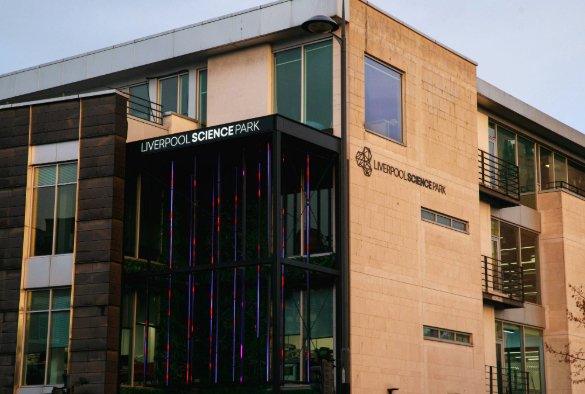University of Liverpool Secures £4.9m to Advance Public Health Research
The University of Liverpool’s recently launched research centre, the Civic Health Innovation Labs (CHIL), goes from strength to strength with a £4.9m investment to help improve healthcare through data science. CHIL is a purpose-built space, located at Liverpool Science Park, where health and technology experts can work together to drive advances in care and wellbeing.
The Office for Life Sciences (OLS) has awarded CHIL this significant amount to deliver the ‘Data-Action Accelerator’. This project brings data scientists and engineers working in and around the NHS together with researchers to tackle global problems. Funding will support work to address antimicrobial resistance (AMR), which occurs when microbes – such as bacteria, viruses, and fungi – develop the ability to defeat medicines used to treat infections.
The rise in mental health conditions and the increasing pressures on health systems around the world from people living longer with more than one long-term condition – particularly combinations of mental and physical health problems in deprived populations – will also be addressed. Significantly, the ‘Data-Action Accelerator’ will enable researchers to use data to create cost effective personalised health technologies for the NHS and give NHS health care professionals training opportunities to use health data most effectively.
CHIL will work with industry partners Quantexa and IQVIA. Quantexa’s move into the region will see its data analytic technology applied to extend reach across bigger, more complex data sources than usual – improving research insights and informing healthcare decisions. Significantly Quantexa’s involvement will also support the creation of local jobs in health-tech development, data and analytics which reflects a key ambition of CHIL in the Liverpool City Region’s Health and Life Sciences Investment Zone. CHIL’s collaboration with IQVIA will ensure that applications designed to address the increasing threat posed by AMR can be adopted at pace and scale to engender optimal prescribing of antibiotics across the NHS.
Professor Iain Buchan, Director of CHIL, and W.H. Duncan Chair in Public Health Systems and Associate Pro Vice Chancellor for Innovation, University of Liverpool said: “We’re delighted to have secured such significant funding to accelerate CHIL’s work. At our recent launch attended by local and national leaders of civic and health innovation we were heartened by the commitment to projects like the new OLS Data-Action Accelerator, in fusing multidisciplinary science and engineering to advance public health. The Accelerator will drive Artificial Intelligence (AI) that tackles hard problems in infection, mental health and optimal use of medicines – minimising harms and delivering better value for patients and the public.”
Rosalind Campion, Director, The Office for Life Sciences said: “The Life Sciences Vision identified investment in Health Data as a key prerequisite for success, and crucial to unlocking its full research and innovation potential. Centres such as CHIL are a shining example of why the UK Life Sciences Sector is internationally recognised – powered by our leadership in innovation, the excellence of our scientific institutions, and the vibrant entrepreneurial community that supports our economy. I am delighted that the Office for Life Sciences can help to deliver the Data Action Accelerator, and support CHIL in driving ever stronger patient benefits and growth for the Northwest and the wider UK.”
This OLS funding is awarded via the NHS England Data for R&D Programme through the North West sub-national Secure Data Environment (SDE) programme to the University of Liverpool.
Additional quotes
Vishal Marria, CEO Quantexa said that: “This past year, the Quantexa team has shared its vision and ambition for innovating the future of Health and Social Care in the UK. But we won’t stop there. Our move into the North-West region to support Mersey Care and the University of Liverpool with the UK’s first mental health research lab is just another step towards adding context to healthcare data to drive more confident decision making. The North-West has some of the highest health inequalities and deprivation in the country. At Quantexa we are committed to using our technology to help address these challenges and improve patient outcomes.”
Tim Sheppard, SVP & GM, UKI & North Europe, IQVIA said: “IQVIA is delighted to announce its strategic collaboration with the University of Liverpool to tackle antimicrobial resistance (AMR), one of the most pressing health challenges of the 21st Century. AMR demands a coordinated, data-driven, cross-sector response and IQVIA will contribute the right technology, information and people to create actionable insights in the fight against AMR.”

